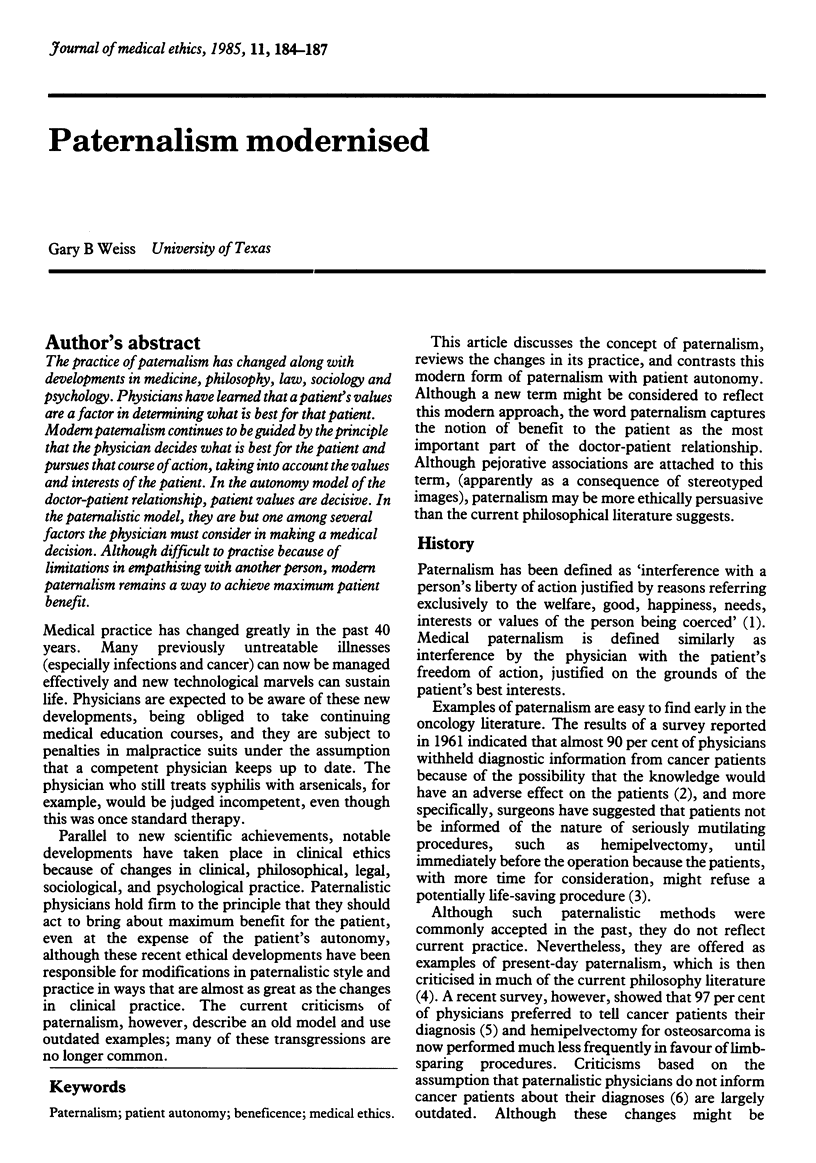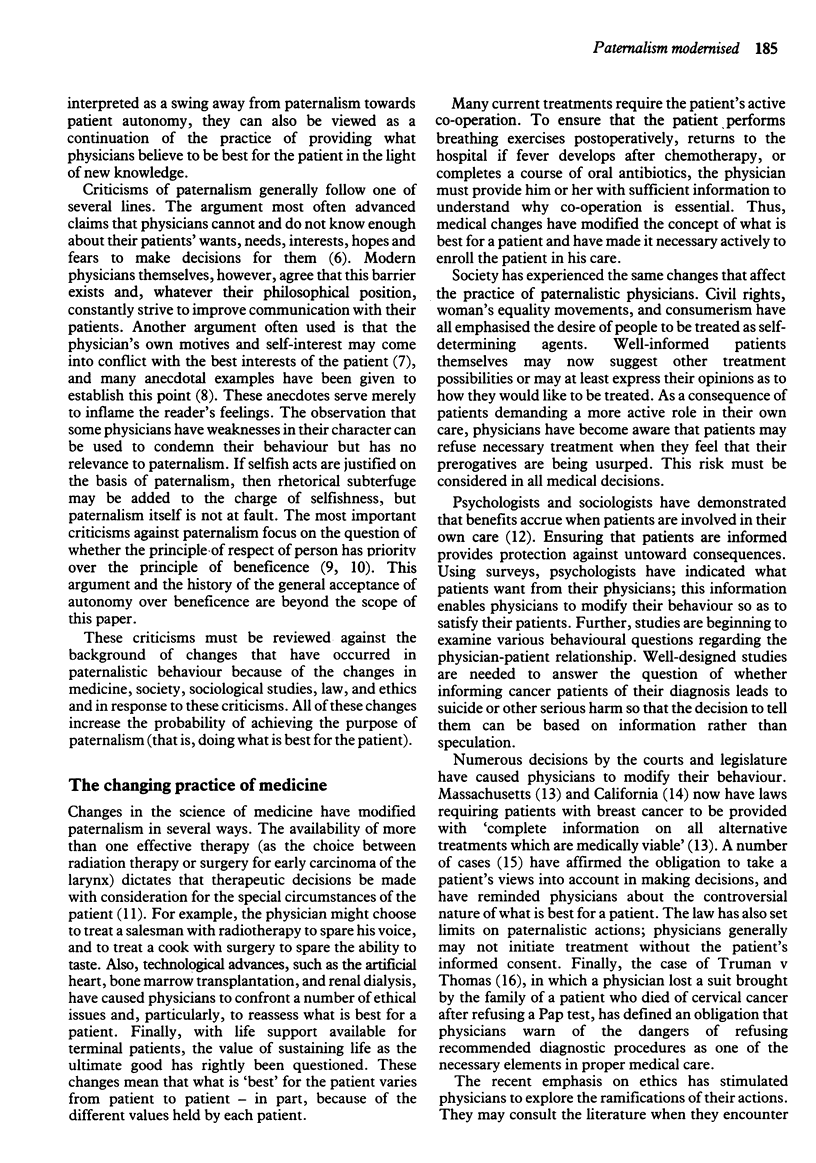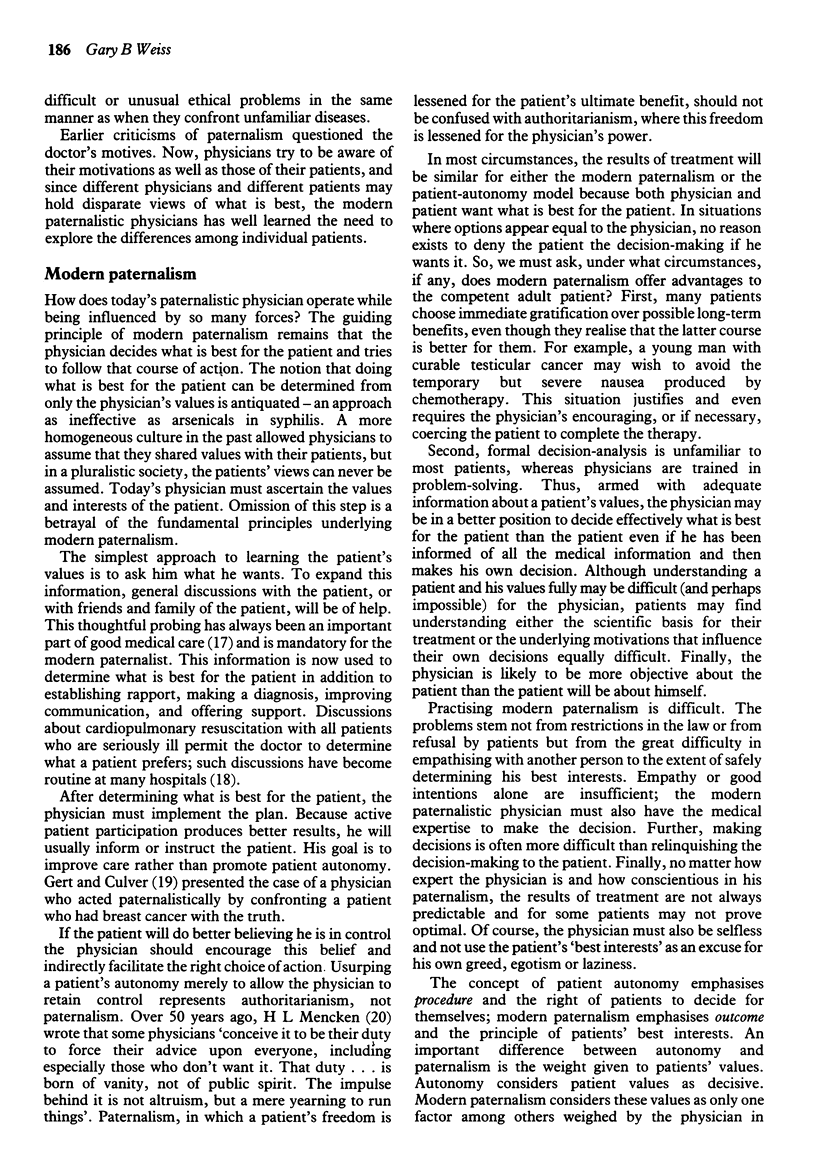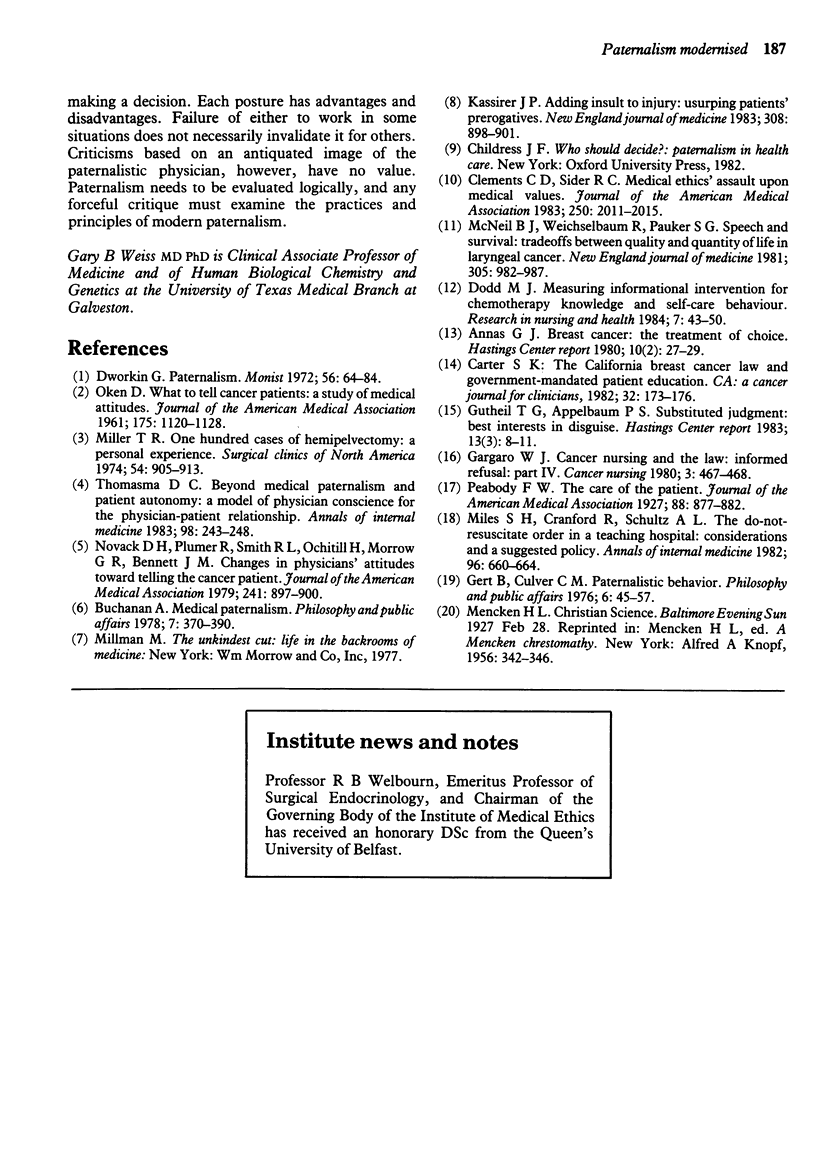Abstract
The practice of paternalism has changed along with developments in medicine, philosophy, law, sociology and psychology. Physicians have learned that a patient's values are a factor in determining what is best for that patient. Modern paternalism continues to be guided by the principle that the physician decides what is best for the patient and pursues that course of action, taking into account the values and interests of the patient. In the autonomy model of the doctor-patient relationship, patient values are decisive. In the paternalistic model, they are but one among several factors the physician must consider in making a medical decision. Although difficult to practise because of limitations in empathising with another person, modern paternalism remains a way to achieve maximum patient benefit.
Full text
PDF



Selected References
These references are in PubMed. This may not be the complete list of references from this article.
- Annas G. J. Breast cancer: the treatment of choice. Hastings Cent Rep. 1980 Apr;10(2):27–29. [PubMed] [Google Scholar]
- Buchanan Allen. Medical paternalism. Philos Public Aff. 1978 Summer;7(4):370–390. [PubMed] [Google Scholar]
- Carter S. K. The California breast cancer law and government-mandated patient education. CA Cancer J Clin. 1982 May-Jun;32(3):173–176. doi: 10.3322/canjclin.32.3.173. [DOI] [PubMed] [Google Scholar]
- Clements C. D., Sider R. C. Medical ethics' assault upon medical values. JAMA. 1983 Oct 21;250(15):2011–2015. [PubMed] [Google Scholar]
- Dodd M. J. Measuring informational intervention for chemotherapy knowledge and self-care behavior. Res Nurs Health. 1984 Mar;7(1):43–50. doi: 10.1002/nur.4770070108. [DOI] [PubMed] [Google Scholar]
- Gargaro W. J., Jr Cancer nursing and the law: informed refusal. Part IV. Cancer Nurs. 1980 Dec;3(6):467–468. [PubMed] [Google Scholar]
- Gert Bernard, Culver Charles M. Paternalistic behavior. Philos Public Aff. 1976 Fall;6(1):45–57. [PubMed] [Google Scholar]
- Gutheil T. G., Appelbaum P. S. Substituted judgment: best interests in disguise. Hastings Cent Rep. 1983 Jun;13(3):8–11. [PubMed] [Google Scholar]
- Kassirer J. P. Adding insult to injury. Usurping patients' prerogatives. N Engl J Med. 1983 Apr 14;308(15):898–901. doi: 10.1056/NEJM198304143081511. [DOI] [PubMed] [Google Scholar]
- McNeil B. J., Weichselbaum R., Pauker S. G. Speech and survival: tradeoffs between quality and quantity of life in laryngeal cancer. N Engl J Med. 1981 Oct 22;305(17):982–987. doi: 10.1056/NEJM198110223051704. [DOI] [PubMed] [Google Scholar]
- Miles S. H., Cranford R., Schultz A. L. The do-not-resuscitate order in a teaching hospital: considerations and a suggested policy. Ann Intern Med. 1982 May;96(5):660–664. doi: 10.7326/0003-4819-96-5-660. [DOI] [PubMed] [Google Scholar]
- Miller T. R. 100 cases of hemipelvectomy: a personal experience. Surg Clin North Am. 1974 Aug;54(4):905–913. doi: 10.1016/s0039-6109(16)40396-8. [DOI] [PubMed] [Google Scholar]
- Novack D. H., Plumer R., Smith R. L., Ochitill H., Morrow G. R., Bennett J. M. Changes in physicians' attitudes toward telling the cancer patient. JAMA. 1979 Mar 2;241(9):897–900. [PubMed] [Google Scholar]
- OKEN D. What to tell cancer patients. A study of medical attitudes. JAMA. 1961 Apr 1;175:1120–1128. doi: 10.1001/jama.1961.03040130004002. [DOI] [PubMed] [Google Scholar]
- Thomasma D. C. Beyond medical paternalism and patient autonomy: a model of physician conscience for the physician-patient relationship. Ann Intern Med. 1983 Feb;98(2):243–248. doi: 10.7326/0003-4819-98-2-243. [DOI] [PubMed] [Google Scholar]


